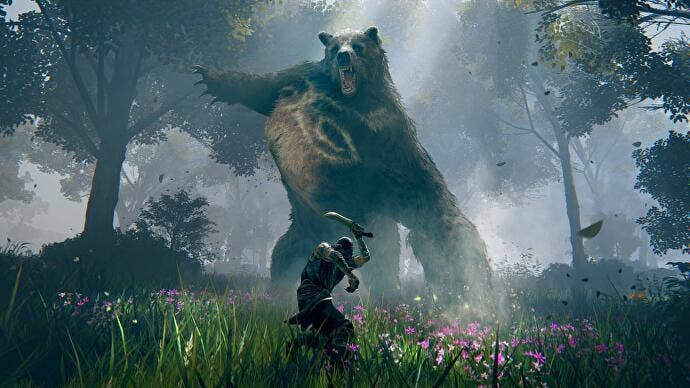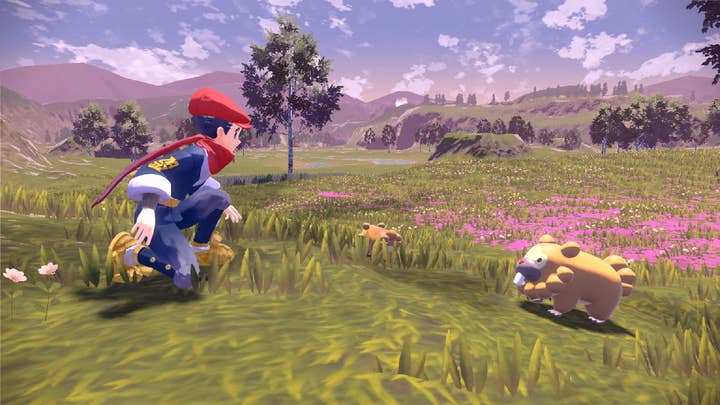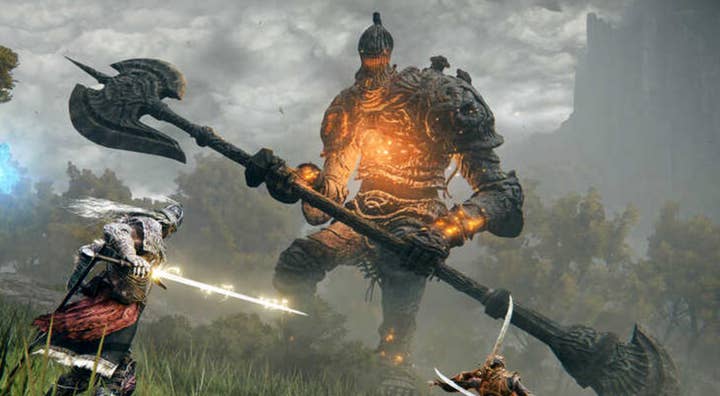Did anything fail during the flood of new releases? | Analysis
It was one of the busiest February and March game release periods in history, and everyone seemed to come out unscathed
Let me set the scene.
The premium new games market has had a difficult few years.
Last year across Europe, new game releases (so titles actually launched in 2021) accounted for less than 30% of all games sold.
There are numerous drivers around this. First, it's been a relatively quiet couple of years for new titles, partially because of COVID-related delays.
Then there's the continued lack of PS5 and Xbox Series X stock, which has at least delayed buying intentions from some players.
"The age of engagement is increasingly at odds with the business of selling new $70 games"
Game prices have also risen significantly, and during uncertain times. Not all publishers have increased their prices, but discounting has reduced -- the days of retail competition driving down costs are long gone.
The pricing situation has become more noticeable with the decline in the pre-owned and trade-in market, which was an inevitable consequence of fewer games coming out, and the rise of downloading.
The dominance of service-based games -- GTA Online, Fortnite, Destiny and the like -- means gamers are spending months, even years, within one title. Many of these games are even free-to-play.
Now there are subscriptions, too. Xbox Game Pass is the most famous example. But even on PS5, every PlayStation Plus subscriber has access to 20 of the biggest PS4 games to play at no additional cost.

On top of that, games companies starting giving away big titles during the COVID-19 lockdowns. Sony's Play At Home Initative saw the platform holder hand out AAA games to millions of its players.
With so many excellent free games and live service titles to play, is it any wonder gamers aren't spending premium prices for solid 8/10 releases like Guardians of the Galaxy or Far Cry 6? Is it any wonder when a game doesn't deliver, like Call of Duty: Vanguard or Battlefield 2042, that players are happy to give them a miss?
The age of engagement is increasingly at odds with the business of selling new $70 games.
If there's one exception to the trend it's Nintendo, a company who permanently has one foot in the way things used to be. Premium Switch games continue to perform strongly, and at physical retail, too.
But even that fits the theory. Nintendo's live service support for its biggest games has a limit (the decision to stop making DLC for its mega-selling Animal Crossing game after 18 months remains an interesting choice). Its subscription service -- primarily made up of DLC and retro games -- is designed purposefully to complement, not replace, its premium business. For Nintendo, the model remains: 'buy a physical game, complete it, buy another one'.
Yet Nintendo aside, the business of selling new games has become challenged. And this meant the start of 2022 was sure to prove fascinating.
The end of January to the middle of March was unusually full of major titles, such as: Pokémon Legends: Arceus, Dying Light 2, Horizon Forbidden West, Elden Ring and Gran Turismo 7. Meanwhile, popular older titles chose this period to give us something more. There was the hotly anticipated Destiny 2 expansion The Witch Queen. Cyberpunk 2077 was significantly updated and is resembling the game everyone hoped it would be. And Grand Theft Auto 5 -- the biggest game in the world -- has been re-released on the new consoles at a budget price.

Even ten years ago, such a high number of new releases -- outside of the gift-giving Christmas period, anyway -- would have resulted in a fair few failures.
Remarkably, however, it's hard to argue that any of the games of the last two months underperformed. Everyone seemed to do rather well.
There were a couple of headline performances, of course. Elden Ring shifting 12 million copies in three weeks is an incredible feat, particularly when its spirtual predecessor -- Dark Souls 3 -- took four years to sell 10 million (which was also viewed as a triumph).
Pokémon Legends: Arceus, too, was a stand out success. Granted a Switch Pokémon game selling well may not sound unusual, but this was a different take on the series, and released barely two months since the previous game. To see this title deliver similar numbers to traditional Pokémon releases defied expectations, and even Nintendo was caught by surprise and had to quickly resupply stock to retail.

Outside of Pokémon and Elden Ring, there were a lot of strong performances. Some may have expected a little more from Horizon Forbidden West, but considering the manufacturing challenges of PS5, it looked like a decent opening to me. Gran Turismo 7 may have 'only' been the fifth biggest GT launch in the UK, but it's also the fastest selling in 12 years, and beat the launch of PS4 hit GT Sport.
Even WWE 2K22, one of the smaller releases that risked being overshadowed by all the fancy blockbusters, sold twice as many copies in the UK (at launch) than its ill-fated predecessor: WWE 2K20.
So what can we conclude from all this? Was the assumption that premium games are suffering in the face of free, live-service and subscription-based games just plain wrong?
"There's no room for mediocre in the premium space anymore, not even 'very good' is going to cut it"
To a degree, I think so. It's easy to forget that a gamer who is engaged in GTA Online or Game Pass is also engaged in playing games generally. You could argue that these live-service titles are stopping players from going elsewhere. But you could also argue that they're keeping people playing even during the quieter months.
There is one connective element to the big games of the last few months: the majority of them were fantastic. I'm not sure I've seen so many Eurogamer 'Recommended' or 'Essential' scores in such a short space of time. It's been a period of real excellence (and what a great advert the past few months have been for the power and influence of video game reviews).
It's hard to disagree with the logic that the rise of high quality service-based games, and the variety of content available in a subscription service, is having a detrimental effect on sales of new games. But there are also more active gamers than ever before. And if you can give them something special, they'll come out for it, regardless of the business model.
At the tail end of last year, Marvel released a high quality TV series based around Hawkeye on Disney Plus. At the same time, it also released a very high quality Spider-Man movie at the cinema. One didn't hurt the other. People watched both.
Games are different, of course. But Marvel's cinematic and small screen success does show that business models and distribution methods are not deal breakers for consumers.
Of course, it helps that Spider-Man: No Way Home was one of the all-time best superhero movies. Just as it helps that Elden Ring is one of the all-time great RPGs. There's no room for mediocre in the premium space anymore, not even 'very good' is going to cut it.
The competition has never been tougher. But the last few weeks have shown that the premium games market is very much alive, and with the right title, the results can be spectacular.

